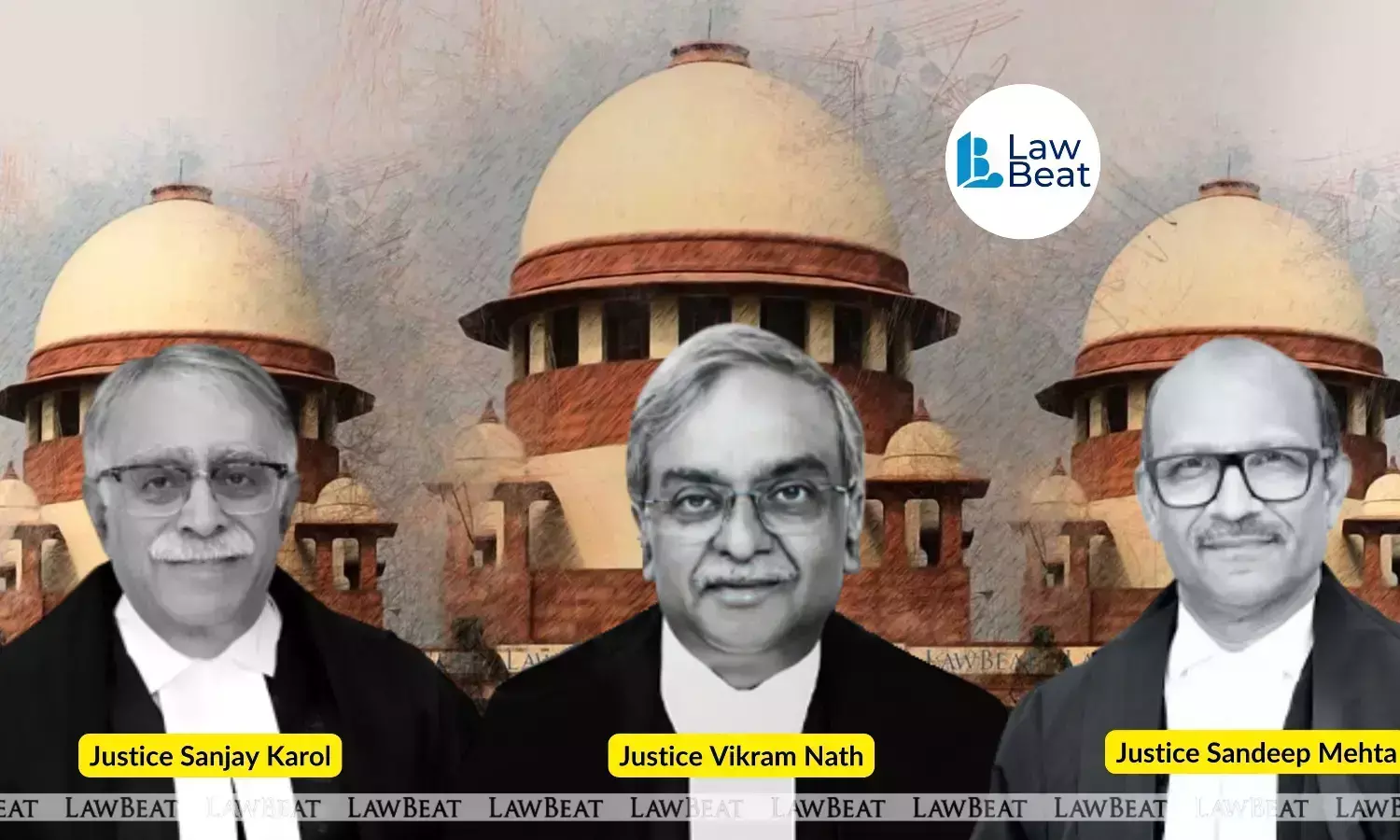SC Overturns Death Penalty In Child Rape-Murder Case, Terms DNA Evidence Without Chain Of Custody ‘Trash Paper’

The Supreme Court on August 26, 2025, held that when no document pertaining to the collection of blood samples from the accused was produced and exhibited in evidence, the DNA reports become inadmissible and “a piece of trash paper.”
A bench of Justices Vikram Nath, Sanjay Karol, and Sandeep Mehta acquitted two men accused of raping and murdering a 12-year-old girl in 2012, setting aside the Allahabad High Court’s 2018 judgment that upheld the Lucknow court’s 2014 decision awarding the death penalty to Putai and life imprisonment to Dileep.
Allowing their appeals, the bench observed that the prosecution fell woefully short of proving the guilt of the accused beyond reasonable doubt.
“We are conscious that the case involves a gruesome act of rape and brutal murder of a tender girl child aged 12 years. However, in a case based purely on circumstantial evidence, the prosecution must prove its case beyond reasonable doubt. The incriminating circumstances must point exclusively to the guilt of the accused and be inconsistent with his innocence or the guilt of anyone else,” the court said.
The bench noted that apart from the allegation that the victim’s chappals, underwear, and water canister were found in the field cultivated by accused No.1 Putai, the prosecution failed to lead credible evidence linking the accused to the crime.
On the DNA reports, the court said no document showing the collection of blood samples from the accused was produced, rendering the reports inadmissible.
It highlighted that the prosecution failed to prove the chain of custody of the forensic samples allegedly collected during investigation, making the DNA evidence insignificant.
The first DNA report was inconclusive, while a supplementary report dated December 2, 2014, was produced during the High Court proceedings along with an affidavit of April 12, 2017, by then Deputy Director, FSL, Lucknow, who was not connected with the issuance of the report.
The court clarified that the DNA report could not have been proved through an affidavit and, as per Section 293 CrPC (Section 329 BNSS, 2023), only formal evidence can be given on affidavits.
“The DNA report is a substantive piece of evidence and hence could not have been tendered in evidence through an affidavit, that too by an officer who was not connected with the procedure in any manner,” the bench said.
The prosecution ought to have recalled and re-examined on oath the scientific expert who issued the report. Its failure to do so, the court held, was fatal to the case.
The bench declared the supplementary DNA report inconsequential and inadmissible since the prosecution neither examined the expert nor put the report to the accused under Section 313 CrPC. It further noted that the first and supplementary DNA reports were in stark contradiction, requiring expert examination, which the prosecution failed to secure.
The court remarked that the case was “yet another classic example of lackluster and shabby investigation and laconic trial procedure” leading to the failure of a prosecution in a heinous crime. It also observed that investigating officers did not examine any person from neighbouring fields where the body was found, despite the incident occurring between 7 PM and 8 PM when darkness had just set in, making it unlikely such an act would go unnoticed.
A doubt was also raised on whether the recovered articles were actually those of the victim, as the parents were not shown these for identification, and the clothes were never sent for forensic examination. Even assuming the items were recovered from Putai’s field, the court said this alone could not prove guilt beyond reasonable doubt;
“The distance between ‘may be proved’ and ‘must be proved’ is small but has to be travelled before the prosecution can seek conviction in a case based purely on circumstantial evidence,” Court observed.
The bench underscored that the fields were open and accessible to all, and the prosecution failed to rule out the possibility of involvement of anyone other than the accused.
“These facts may give rise to suspicion, but that by itself is not sufficient to establish that it was the accused No.1 Putai and none else who committed the ghastly crime,” the judgment said.
Case Title: Putai v. State of Uttar Pradesh
Date of Judgment: August 26, 2025
Bench: Justices Vikram Nath, Sanjay Karol, and Sandeep Mehta
